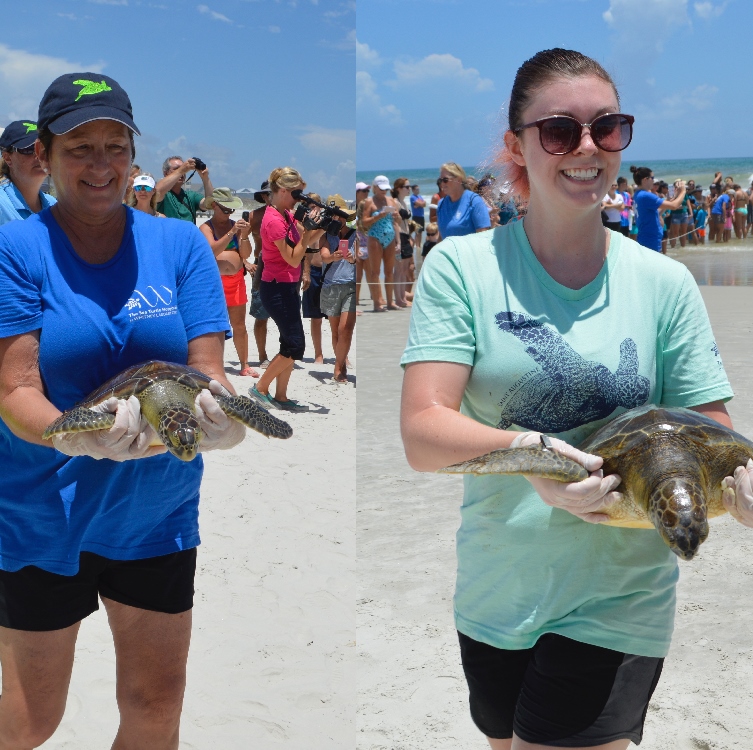 The Whitney Laboratory for Marine Bioscience
The Whitney Laboratory for Marine Bioscience

Mean Joe Green and Tamatoa were released on Thursday, July 13, 2017, at 1 p.m. at the north end of Crescent Beach.
Mean Joe Green stranded on Crescent Beach on Feb. 6, 2016. Joe was cold stunned and suffering from fibropapillomatosis (FP). We treated him with fluids and antibiotics and warmed him back up slowly. Once Joe was feeling better, we used our CO2 laser to remove all of Joe’s FP tumors. While Joe had a very small load of tumors and we were able to remove them all in one surgery, he had a lot of re-growth. During his year and a half stay at the Sea Turtle Hospital at Whitney Lab, Joe underwent a total of six tumor removal procedures. Today he has finally been deemed tumor free and is very ready for release back to the wild. Mean Joe Green is a play on the name Mean Joe Greene (former defensive lineman for the Pittsburgh Steelers) as the donor who named Joe is a Steelers fan and a fan of green sea turtles, like Joe!
Tamatoa was found in Salt Run at Anastasia State Park on April 17, 2017. Tamatoa was observed by fishermen in the shallows, and state park employees were notified because the turtle had “bumps” on it. The turtle was able to be grabbed up and was transported to our hospital. Upon arrival to the hospital, we noted that the turtle was in very good body condition and had no serious health issues. The bumps on the turtle were identified as Fibropapillomatosis (FP), but there were very few tumors and none of them were a hindrance to the animal. Typically, the presence of tumors is not reason enough to capture a wild animal and send it to a rehab facility. Once the turtle’s shell was cleaned off, a beautiful sunburst pattern was revealed. Green sea turtles typically have beautifully patterned shells, but this turtle was especially pretty. This prompted hospital staff to name the turtle “Tamatoa,” after the crab in Moana, because he was so “shiny.”
Sea turtles, like all wild animals, can become accustomed to humans and can even start to view humans as a potential food source if they are being fed by humans. This can put turtles close to fishing hooks and boats, which can both be deadly for sea turtles. Please be mindful and remember to never feed wild animals, and remind your friends and family that feeding wild animals can be harmful for them.
Thank you to everyone who attended the release!